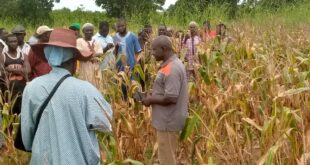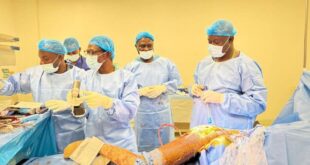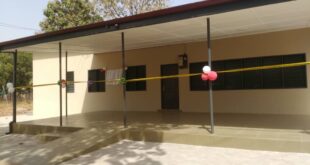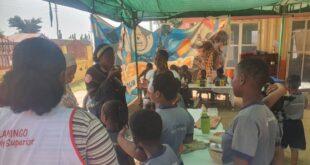Tamale, Ghana – A new survey conducted in three districts in the Northern Region of Ghana has uncovered that, eight (8) out of 10 pupils in primary 6 in those districts cannot do class 2 level tests in numeracy and literacy.
The report of the survey which was released on Thursday October 25, 2018 also revealed that, 7 out of 10 pupils age between 6 and 15 years in the Sawla-Tuna-Kalba and Kpandai Districts as well as the Sagnarigu Municipality cannot do class 2 level tests in numeracy and literacy.
Whereas 4 out of 10 children of pre-school age are not in school, only 5 out of 10 children are in pre-school at the right age. Worst still, only 1 out of 10 trained teachers are teaching in kindergarten.
These staggering statistics which were released following an assessment conducted by Choice Ghana in 2017 under a project dubbed: “Scale Ghana” further indicated that, 6 out 10 children are not enrolled in or progressing in school at the right age in the three districts.
Programme Coordinator of Choice Ghana, Adjei Kadiri, at an education stakeholders’ forum in Tamale where the assessment report was outdoored, said “on any given day, 3 out of 10 teachers are absent from school whereas 3 out of 10 teachers are untrained.
“Also during the assessment, we discovered that 8 out of 10 schools had no single computer even though 7 out of 10 schools in the 3 districts offer information and communication technology lessons”, he indicated.
According to Mr. Kadiri, there was significant number of children between the ages of 3-5 years who were not enrolled in pre-school. “That is, 42 out of 100 children surveyed were not enrolled. These however, differ from one district to the other as Kpandai recorded the highest number of children (62%) between the ages of 3-5 years who were not enrolled in preschool”.
He continued: “25 out of 100 children aged 2-3 years are attending preschool even though the policy stipulates that a child can start preschool at age of 4 years. Only a little above half of children surveyed were in preschool at the right age. That is, 54 out of 100 children aged 4-5 years were rightly attending preschool at the correct age. 20 out of 100 children aged 6 years and above were attending preschool when they should have been enrolled in primary school.”
Executive Director of Choice Ghana, Mohammed Seidu, said the objective of the assessment was to establish how the strengths and weaknesses of pupils in the low and upper primary in numeracy and literacy subjects as well as Ghanaian language subjects taught in the various schools in the 3 districts.
The second object, he explained, was to also use the evidence gathered through the assessment to influence policy formulation at the governmental level so as to get the issues addressed at the basic school level across the country.
Mr. Seidu thanked OXFAM Ghana and CALID for providing them with the funding and technical assistance to carry out the assessment in the three districts.
Meanwhile, Head of Planning at the Northern Regional Directorate of the Ghana Education Service, Askia Mohammed Prince in an interview with the media, commended Choice Ghana for the revealing survey it conducted in the three districts.
He noted that the survey had revealed loopholes that were still needed to be plucked through rigorous and persistent monitoring and supervision.
Mr. Askia stressed the point that, without adequate funding and provision of resources such as teaching and learning materials as well as furniture for pupils at the basic level, the challenges uncovered by the survey would continue to be there.
By Savannahnewsonline.com/Philip Liebs
 Savannah News Online Reporting Only What Matters Most
Savannah News Online Reporting Only What Matters Most



